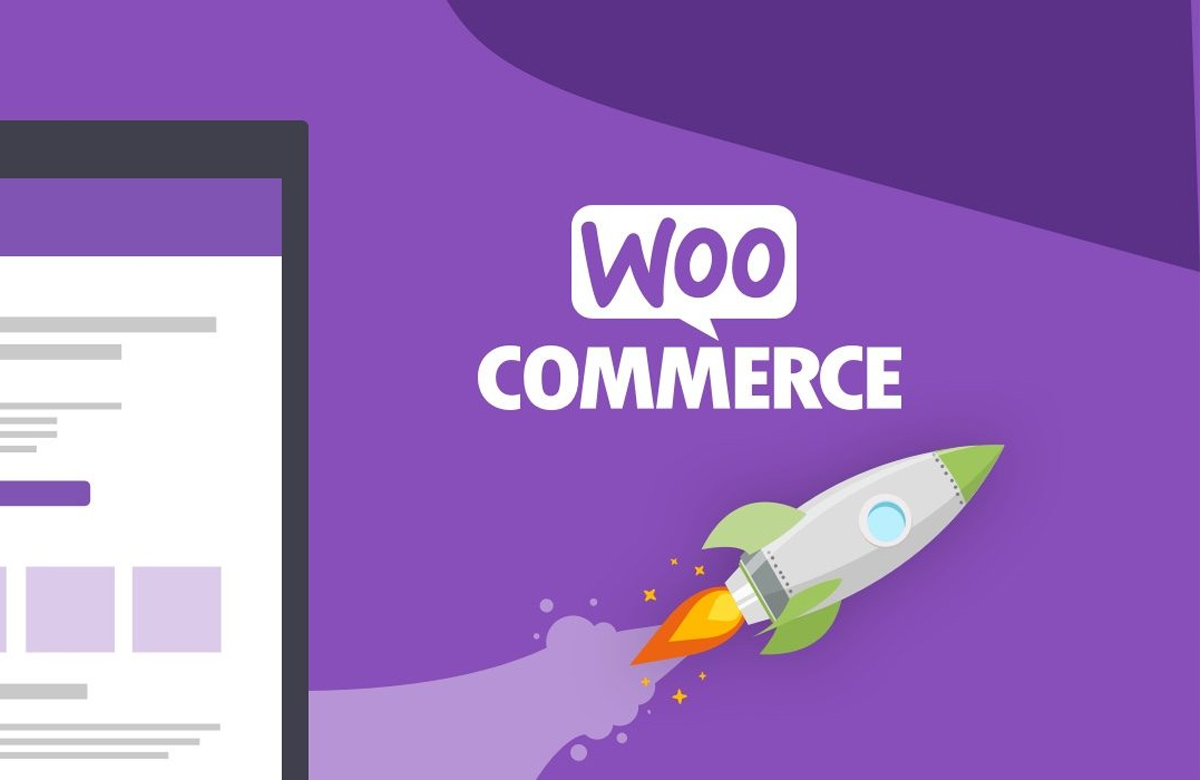Do you want to build your eCommerce website but don’t know anything about eCommerce website builders? Don’t worry; we’ve got you covered!
In this article, we’ll review the five best tools to build your own eCommerce website and give you some steps to choose the best one for YOU. Enjoy!
Table of Contents
What Makes a Great eCommerce Website Builder?
A good eCommerce website builder is the backbone of any successful online store. It should provide essential features and functionalities to help you create a professional, user-friendly, and secure website.
Most successful online stores are built using a website builder.
Essential Features to Look For
There are four essential functionalities you should look for when you choose a good eCommerce website builder.
First, the platform should offer great product management capabilities. This means that you must be able to manage your inventory, set up product variations, and organize products into categories.
Another essential aspect is payment processing. How could you build an ONLINE STORE without having as many payment getaways as possible? Choose a builder that offers multiple payment gateways, such as credit cards, PayPal, and other digital wallets, to cater to diverse customer preferences.
Additionally, look for platforms that offer built-in shipping and tax calculators. These can simplify your customers’ checkout process, which means they will want to buy again from you.
SEO tools and marketing integrations are also VERY important. A good eCommerce website builder should offer tools to optimize your site for search engines. This will help you attract organic traffic and increase sales without investing more money into the project.
“eCommerce website owners need every bit of marketing help they can get, which is why the right platform can make your marketing so much easier”
Donald Chan, founder of Proficient Digital, a leading digital marketing agency in Singapore.
Integration with email marketing services, social media platforms, and analytics tools can further enhance your marketing efforts and provide valuable insights into your customers’ behavior.

Why User Experience and Design Are Crucial
When building a website, you should always think critically. When did you last buy something online from a site you didn’t like?
That’s why your chosen platform should offer intuitive navigation and an easy-to-understand checkout process. A confusing website will lead to high bounce rates and abandoned carts, negatively impacting sales.
Design flexibility is also crucial. Having a wide range of themes and templates to choose from can allow you to create a unique store, which will attract more customers and generate sales.
For instance, if you’re selling luxury goods, you might opt for a minimalist design that reflects the exclusivity of your products. In contrast, a playful and colorful design could be more appropriate for a store selling toys or children’s apparel.
Customer Support and Security: Non-Negotiable Essentials
Reliable customer support is crucial, especially if you’re new to building websites. Look for platforms that offer comprehensive support options, including live chat, email support, and a robust knowledge base. Some builders even provide dedicated support teams or account managers for larger businesses.
Security features are another critical consideration. A good eCommerce website builder should offer SSL certificates, data encryption, and compliance with payment industry standards like PCI-DSS. These features help protect your customers’ sensitive information and build trust in your brand.
Top eCommerce Website Builders for 2024: The Contenders
Here are the five best platforms you can use to build your website!
WooCommerce: The Customization Champion
Launched in 2011 by WooThemes and acquired in 2015 by Automattic, WooCommerce is one of the most popular website builders. It is a flexible, open-source solution designed for WordPress websites and widely used for building eCommerce stores.
Today, more than 3.8 MILLION online shops, raging from retail stores and bookstores, use WooCommerce. But why is it so popular?
Mostly because of its beginner-friendly interface, WooCommerce doesn’t require advanced IT or coding skills, making it a popular choice for brick-and-mortar businesses worldwide.
In addition, WooCommerce makes managing the store even easier than setting it up. The builder offers tools for setting up product displays, handling orders, and accepting various payment gateways.
Another important factor in why WooCommerce became so popular is that it is completely free, so everybody can build their store with It.

Shopify: The All-in-One Powerhouse
Founded in 2006, Shopify is currently the world’s largest and most popular eCommerce website builder. With over 5.4 million stores opened through Shopify, the company has changed the game regarding online sales.
Most businesses choose Shopify because the platform can combine online and offline purchases in one place. It allows you to seamlessly manage inventory, marketing, payments, and shipping, integrating all the tools you need to streamline your business.
Moreover, the platform offers the ultimate user-friendly design. Anyone can create a store from nothing, and the store can then be accessed from anywhere in the world and on any device with an internet connection.
Such a platform must be expensive to use, you might think. Not at all!
You can start with a free trial to explore Shopify’s features. During this trial, you can create your store, test free Shopify apps, and even make sales if you put in the effort.
The Shopify Starter plan costs $5 per month, but most new store owners opt for the Basic Shopify plan, which costs $29 monthly.
If you’ve been running an e-commerce business for a while, you might prefer the Advanced Shopify plan.
Wix: Simplicity Meets Creativity
Wix is one of our top website builders, offering exceptional tools for web creation. It features thousands of plugins, a vast selection of beautiful templates, and a user-friendly editor. These qualities make Wix particularly appealing to a wide range of users, especially beginners, allowing them to create portfolios and online stores easily.
Wix provides four pricing plans, ranging from free to $79.50 monthly. Two plans are designed for standard professional websites, while the other two cater specifically to eCommerce needs. Overall, Wix’s pricing is reasonable and aligns with industry standards.
Wix is extensive template library, including designs for various industries and product types, is a standout feature.
These templates are fully customizable, enabling you to adapt the design to match your brand’s unique style. Additionally, Wix offers a range of marketing tools, such as email campaigns, social media integration, and a built-in SEO wizard to help optimize your site for search engines.
While Wix offers a solid range of eCommerce features, including secure payment processing and product management, it is generally better suited for smaller stores or those with more straightforward needs. Compared to platforms like Shopify or BigCommerce, Wix lacks the same scalability and advanced eCommerce functionalities.
GoDaddy: Best for Small Businesses
Best known for its domain registration and web hosting work, GoDaddy also offers eCommerce builder functionalities we can review. The platform was initially designed for small and medium-sized businesses, so GoDaddy is a hard no for you if you aim higher.
Besides that, the platform offers all the functionalities you might need: product management, secure checkout, payment processing, and more. It also has an excellent range of marketing tools, including SEO optimization, social media marketing, and email marketing.
GoDaddy also provides a lot of customizable templates, allowing users to create a store that reflects their brand.
However, compared to platforms like Squarespace and Shopify, GoDaddy’s customization options are more limited. GoDaddy’s eCommerce plans start at $29.99 per month, which includes access to all eCommerce features, SSL certification, and 24/7 support.
Squarespace: Perfect for Aesthetic Portfolios
If you have a small business and want to increase sales through an online presence, Squarespace is the best choice. The platform offers great functionality, multiple templates, and a user-friendly editor, making site creation quick and easy.
The platform also offers a wide range of eCommerce tools, but you won’t be able to build large stores with it. Usually, Squarespace is used more often for personal portfolios or simple blogging than eCommerce. However, if you have a small store, Squarespace will do fine.
Squarespace’s premium plans are reasonably priced, making them a good option for non-profits. When billed annually, costs range from $16.00 to $52.00 per month, which is quite competitive compared to other options in the market.
Comparing the Best eCommerce Platforms
- Woocommerce: excellent customization and performance, but with fewer integrations and plugins.
- Shopify: has great eCommerce features, but the transaction fees can be a drawback.
- Wix: very user-friendly with a simple setup, but it lacks advanced eCommerce features.
- GoDaddy: good integration with hosting services but limited eCommerce functions.
- Squarespace: excels in design and aesthetics but is not suited to larger businesses.
How to Choose the Best eCommerce Website Builder
Choosing the best eCommerce website builder depends on your business needs and goals. Here are the most important factors to consider:
- Business Size and Growth Potential: If you’re in a fast-growing niche and expect rapid growth in clients and sales, choose Shopify. This is the only platform that can handle many sales, extensive product lists, and data.
- Budget: If you’re on a budget and can’t afford a subscription, consider using WooCommerce. The platform doesn’t require upfront costs and offers the same functionality as paid ones.
- Technical Skills: If you don’t have any technical skills and don’t know anything about coding, choose a platform that will do everything for you. Wix is the best possible choice in that case.
- Customization Needs: For businesses requiring a unique look and advanced features, WooCommerce or Shopify offers more customization options.
- Support and Resources: Ensure the platform provides adequate support, such as tutorials, forums, and customer service.

Practical Tips for Evaluating Platforms
- Try Demos and Free Trials: Most platforms offer free trials or demos. Use these to test the interface, features, and ease of use.
- Check User Reviews: Look at reviews and testimonials from other businesses to gauge satisfaction and joint issues.
- Assess Scalability: Consider how well the platform can grow with your business, including the availability of advanced features and integrations.
- Evaluate Customization Options: onsider how much control the platform gives you over design and functionality. Platforms like WooCommerce allow extensive customization, while others like Wix may be more limited. Match the level of customization with your technical skills and branding needs.
- Compare Pricing Plans: Understand the cost structure, including hidden fees such as transaction fees, plugin charges, or scaling costs. Choose a platform that fits your budget now but can also scale affordably as your business grows.
- Test Payment and Checkout Processes: Simulate a customer’s journey by testing the payment gateways and checkout
Top Picks for Different Business Types
- Small Businesses and Startups: Wix or GoDaddy for their ease of use and cost-effectiveness.
- Creative Professionals and Designers: Squarespace for its beautiful design templates.
- Growing Businesses: Shopify for its scalability and extensive feature set.
- Tech-Savvy Entrepreneurs: WooCommerce with Blocksy for its customization and flexibility.
FAQs
What Is the Best E-commerce Website Builder for Beginners?
If you are a beginner, WooCommerce should be your choice. The platform offers all the features you might need for free.
Can I Switch to E-commerce Platforms Later?
Yes, it is possible to switch platforms later, but it is very time-consuming. It would be better to choose a platform and stick to it.
Do I Need Technical Skills to Use These Platforms?
No, you don’t need technical skills to use these platforms. The whole purpose of a website builder is to eliminate the need for coding or IT skills when creating a site, so you won’t have to deal with any technicalities.
Conclusion: Start Building Your eCommerce Dream Today
Building a successful eCommerce website is hard, especially if you don’t know what tools to use. After you’ve read this article, you now know that at least five companies are ready to help you with this task.
But remember, even if it seems easier initially, creating and maintaining a running eCommerce website takes time and knowledge – especially if you don’t use the Blocksy theme!






